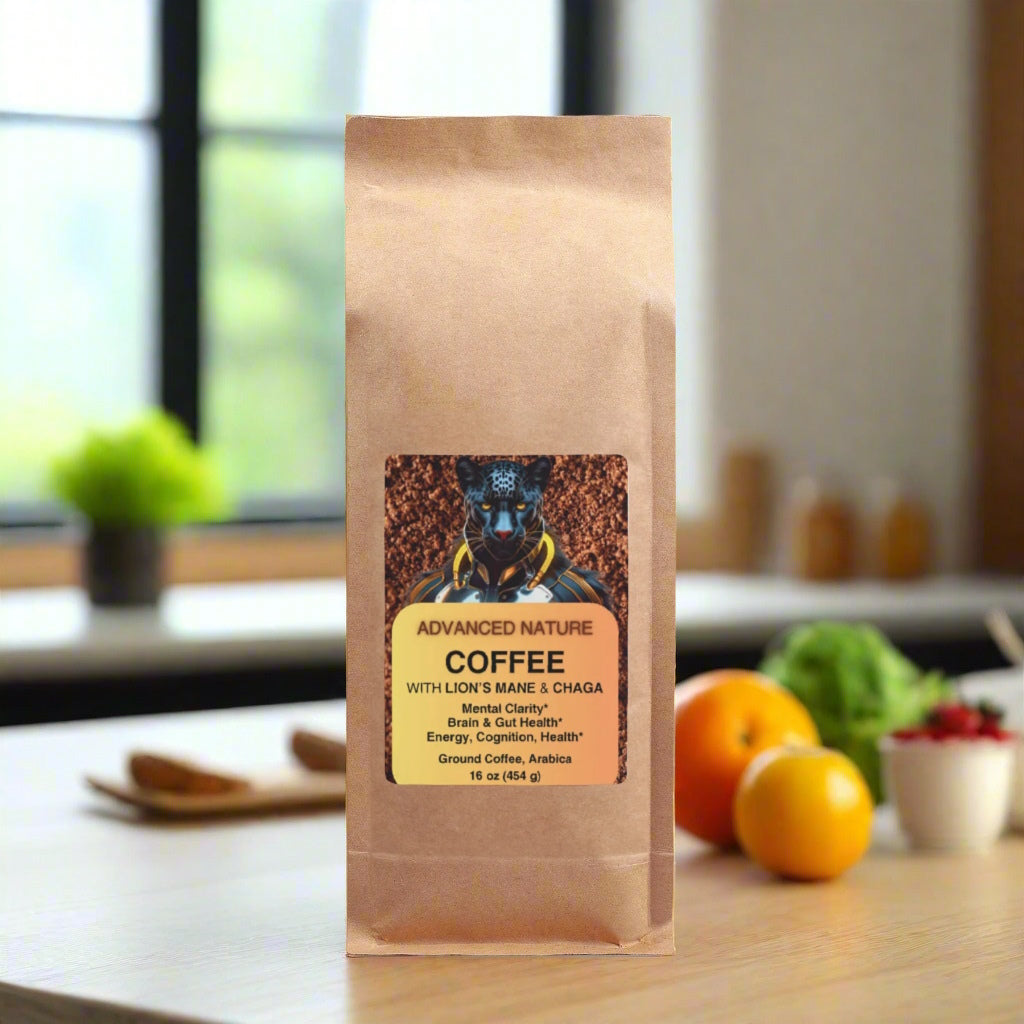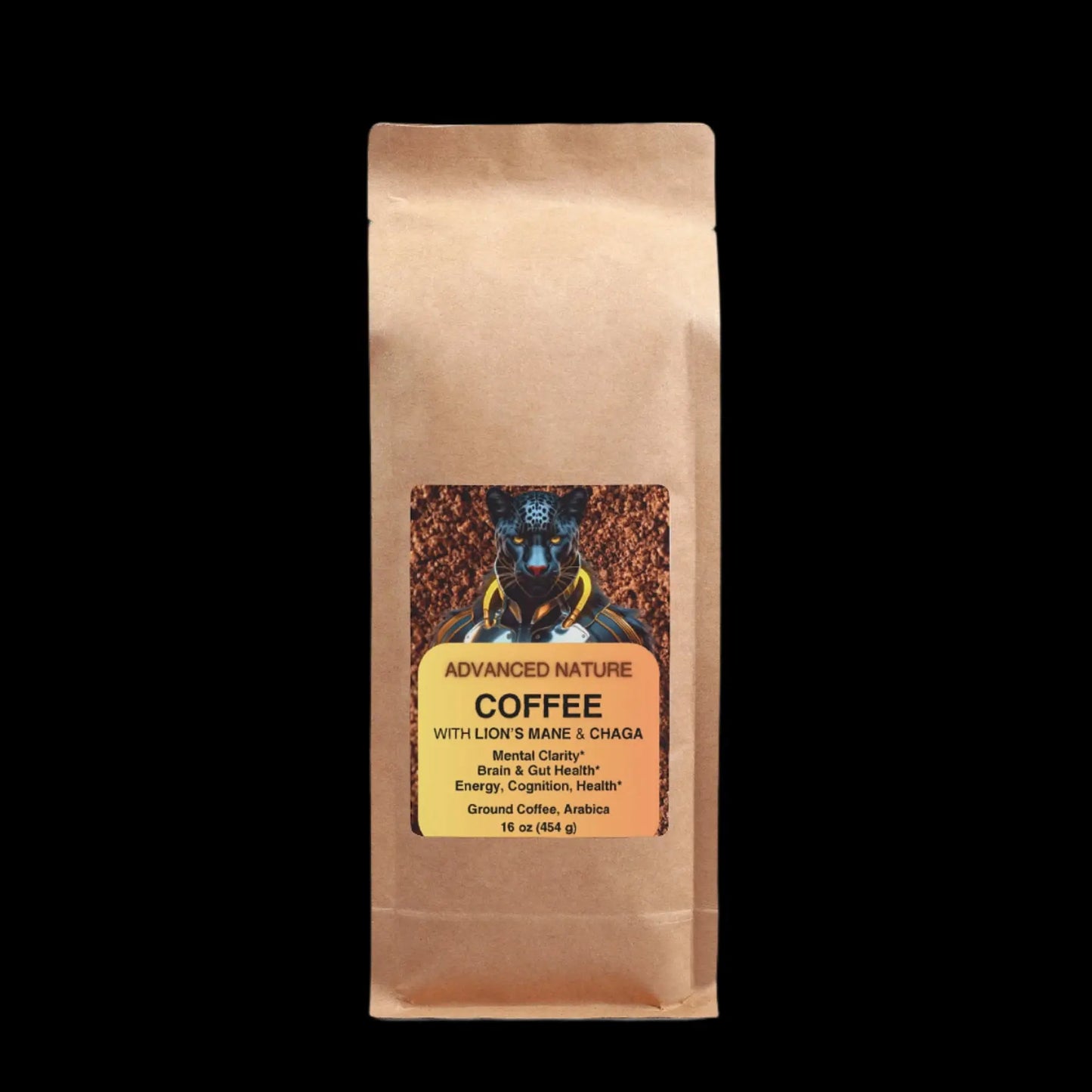
Lion's Mane and Chaga Mushrooms for 🍏Gut Health
Share
Good gut health is the foundation of overall well-being, and Lion's Mane and Chaga Mushrooms are two natural powerhouses that can help support it.
These remarkable fungi have been studied for their ability to balance gut bacteria, reduce inflammation, and promote regeneration.
- Lion's Mane stands out for its prebiotic properties and gastroprotective effects,
- Chaga offers potent antioxidants and microbiome-boosting benefits.
Backed by scientific research, these mushrooms are a natural and effective way to enhance your gut health and support your overall vitality!
Lion's Mane

Studies on animals indicate that Lion's Mane (Hericium erinaceus) extract exhibits gastroprotective, immunomodulatory, anti-inflammatory, and prebiotic effects, promoting beneficial gut bacteria while alleviating gastrointestinal diseases.
- A 2013 study on rats has shown a significant gastroprotective and regenerative activity of Lion's Mane extract in gastric ulcer models. [1]
- A 2017 study on mice and cell cultures has shown that Lion's Mane's proteins provide immunomodulatory and anti-inflammatory effects, through regulating the gut microbiota. [2]
- Same year study on rats has shown that Lion's Mane extracts may relieve inflammatory bowel disease by regulating immunity and gut microbiota. [3]
- A 2023 review summarized more than 10 studies of the efficiency of different Lion's Mane's compounds against numerous gastrointestinal diseases, and has concluded that the results are promising. [4]
- Finally, a 2024 study on mice, published in Biology, has concluded that Lion's Mane "promotes the growth of beneficial gut bacteria, parallelly reducing pathogen bacteria, therefore revealing its prebiotic effect. Additionally, this oral supplementation had a positive impact on cognitive function, also leading to a decrease in inflammation in the hippocampus, a brain area crucially involved in memory formation and consolidation. Overall, these findings support the notion that changing the gut microbiome composition through nutrition modulation could trigger longevity-promoting effects, protecting from age-related cognitive decline." [5]

Lion's Mane's Beneficial Effects on Gut–Neuroinflammaging–Cognitive Axis (adapted from Priori, E. C. et al., 2024)
Numerous animal studies have shown that anti-inflammatory action is one of the main mechanisms of Lion's Mane benefits, including improving gut and overall health by reducing inflammation and modulating healthy gut microbiota, which also produces anti-inflammatory molecules. [5, 6, 7]

A summary of active substances of Lion's Mane and their biological activities (adapted from Qiu Y. et al., 2024)
Chaga

2 animal studies have shown that Chaga (Inonotus obliquus) provides some beneficial changes in gut microbiome, which may partly explain its health benefits.
- "...Inonotus obliquus polysaccharide increased the abundance of beneficial bacteria, such as Clostridia_UCG-014 and Prevotellaceae_NK3B31, and reduced that of harmful bacteria, such as Colidextribacter and Desulfobacterota in the intestine of both male and female rats..." [8]
- "...there is an increase in the number of beneficial bacteria, such as the Eubacterium coprostanoligenes group and g.Lachnospiraceae NK4A136 group, while the levels of metabolites that are linked to obesity or diabetes, such as 1,5-anhydrosorbitol, are reduced" [9]
What's more significant about Chaga's benefits — is its anti-inflammatory properties, which may help with a range of gut problems. Different biomolecules from Chaga have shown strong antioxidant and anti-inflammatory properties in studies on cell cultures and animals:
- "The results demonstrate the anti-inflammatory and immunomodulatory effects of I. obliquus melanin and triterpenoids, which could potentially justify the consumption of this increasingly popular “edible” fungus." [10]
- "These results indicated that the potential anti-inflammatory effects of inonotusols I and L in microglial BV-2 cells may be imparted through suppression of iNOS. These results may support the use of I. obliquus for food and medicinal application." [11]
- "Data presented here... highlights the important anti-inflammatory properties of Inonotus obliquus..." [12]
- "...effectively prevented the negative impacts of inflammatory agents on flies... elevated reactive oxygen species levels and cell death were alleviated by Inonotus obliquus aqueous extract, suggesting that this extract inhibited intestinal inflammation." [13]
Moreover, a healthy gut microbiome and a diet rich in fiber may enhance the bioavailability of valuable fungal molecules. [14]
Conclusion
Lion's Mane and Chaga mushrooms are more than just superfoods — they’re scientifically proven allies for gut health.
Lion's Mane helps balance gut microbiota, reduces inflammation, and protects against gastrointestinal disorders, while Chaga offers potent anti-inflammatory and antioxidant benefits to maintain a thriving gut environment.
Incorporating these mushrooms into your wellness routine can not only enhance digestion but also contribute to holistic health and vitality through a wide range of other benefits that these two mushrooms provide!

























